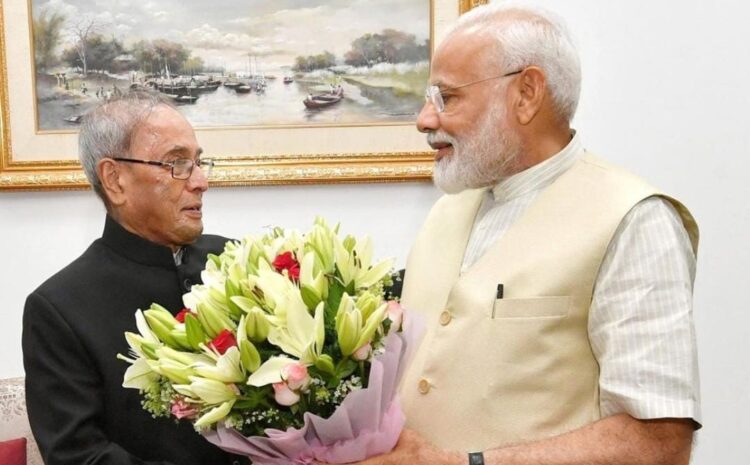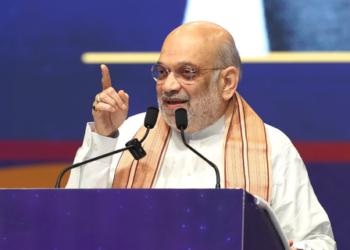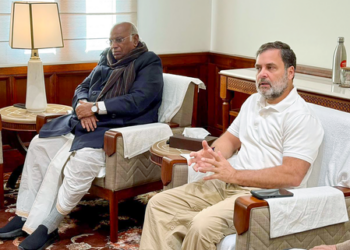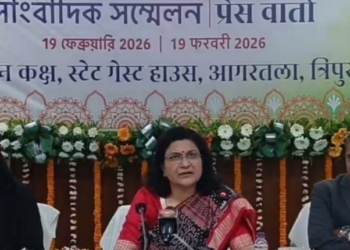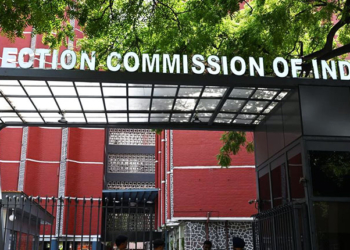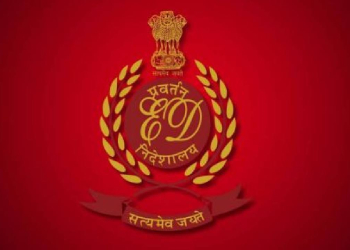New Delhi: Two years after Pranab Mukherjee became India’s 13th President, the BJP led by Narendra Modi was swept to power. This made Sharmishtha Mukherjee, his daughter and biographer, wonder if the two could ever have a pleasant working relationship in view of their divergent political views
Mukherjee surprised Sharmishtha by getting along “famously” with PM Modi and also went on to become the first former President of India to address the RSS in Nagpur and describe the organisation’s founder, Keshav Baliram Hedgewar, as “a great son of Mother India”.
Mukherjee’s view, according to his daughter, was that “Narendra Modi is the only PM after Indira Gandhi, who has the ability to feel the pulse of the people so acutely and accurately. On 23 October 2014, he noted in his diary, ‘PM’s decision to spend Diwali with jawans at Siachen and flood-affected people at Srinagar speaks of his political sense which was not visible in any other PM except Indira Gandhi’.”
Mukherjee could make this comparison with authority, having watched Mrs Gandhi closely since 1969, when she brought him into the Rajya Sabha as a Congress MP from West Bengal, and gave him a place in the Union Council of Ministers as Deputy Minister for Industrial Development in 1973.
Although he was President and therefore officially above partisan politics, Mukherjee, as he wrote in his diary, “performed my duties of administering the oath and talking to people but with a heavy heart. I am no longer associated with any political party, but how can I forget that I was associated with the Congress for more than 40 years?” Even his father was an “active member of the Congress for 30-40 years”.
On the day after he was elected leader of the BJP parliamentary party in 2014, Modi came to meet Mukherjee at Rashtrapati Bhawan and here’s what transpired between the two in the words of the then President of India: “Modi touched my feet and said, ‘Dada, you guide and advise me as your younger brother.’ I assured him of my fullest cooperation.”
To this brief account, Sharmishtha adds: “Much later, I came to learn more about the meeting directly from the PM. By his own admission, PM Modi was a little nervous when he went to meet Pranab. The latter put Modi at ease and told him candidly, ‘We belong to two different political ideologies. People have given you the mandate to rule. Governance is the domain of the Cabinet headed by the Prime Minister. That’s your job. I will not interfere. If you need any advice on constitutional matters, I will definitely help you.’
“Modi told me, ‘It was a very big thing for Dada to say.’ From the conversation, it seems that there was an openness and honesty in their interaction from the very beginning.”
It was as Chief Minister of Gujarat that Modi first met Mukherjee at Rashtrapati Bhawan on August 18, 2012. In his diary entry on that day, Mukherjee couldn’t help commenting on the dichotomy of a fierce critic of the Congress and the Manmohan Singh government insisting on touching his feet and addressing him as ‘Dada’.
Commenting on this “strange soft corner” that Modi had for him, Mukherjee noted in his diary: “… he always touches my feet and tells me that it gives him pleasure to do so. I don’t know the reason for it.”
Explaining this facet of their relationship, Sharmishtha Mukherjee says: “At a later point, PM Modi personally told me about his practice of touching Pranab’s feet. He shared that he had
known Pranab for a long time, even before he became Gujarat CM.”
Modi would frequently visit Delhi for organisational duties and stay in the elite North/South Avenue area. During these visits to Delhi, Modi would occasionally meet Mukherjee during his morning walks. And Mukherjee would always speak kindly to him, and Modi always showed respect by touching his feet.
So, what did President Mukherjee have to say about Prime Minister Modi?
In a tell-tale diary entry, he wrote: “We had discussions on various issues. He told me that he valued my advice and I told him that he will get my full cooperation. It is quite clear that:
1. he has clarity in his thoughts and has a professional approach to statecraft
2. he feels the pulse of the people very strongly
3. he wants to learn and does not pretend that he is ‘Mr Know All’
4. As a hardcore RSS man, he is fiercely patriotic and nationalist.”
(IANS)




